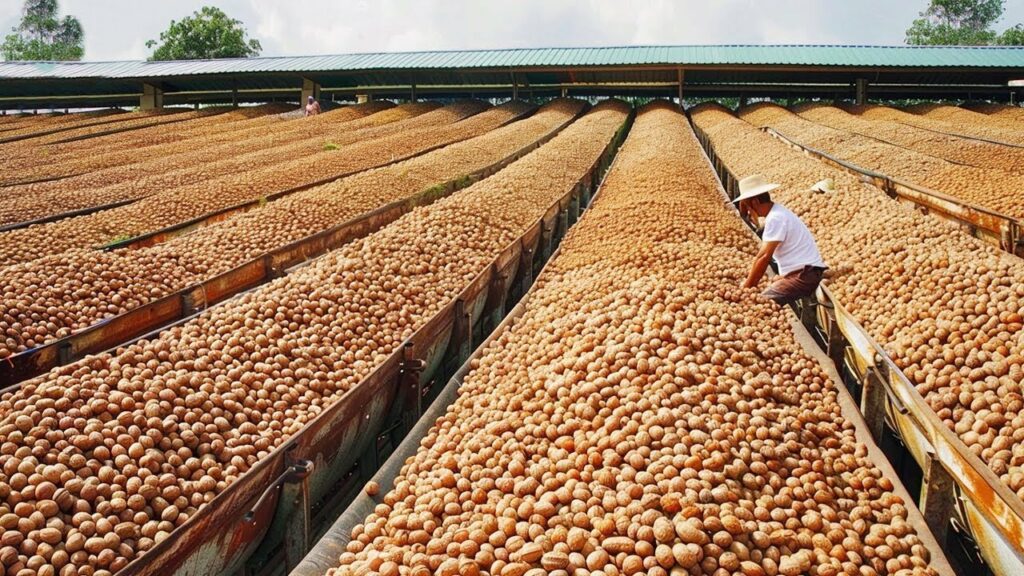You Won’t Believe How Walnut is Produced And What is Made Using Walnut

Walnuts are a beloved snack and ingredient, known for their rich flavor and health benefits. However, the journey from tree to table is more fascinating than you might think. Let’s explore how walnuts are produced and the incredible array of products made from them.
The Walnut Growing Process
- Planting and Growing: Walnut trees are typically planted in orchards and can take 5 to 7 years to start producing nuts. These trees thrive in temperate climates and require careful nurturing to grow properly.
- Harvesting: Walnut harvesting usually occurs in late August through November. Farmers use mechanical shakers to shake the trees, causing the walnuts to fall to the ground. The nuts are then collected and taken to processing facilities.
- Processing: Once harvested, the walnuts are hulled and dried to reduce moisture content, preventing spoilage. The shells are then cracked to extract the edible nuts inside.
- Grading and Packaging: After processing, walnuts are graded based on size and quality. They are then packaged for sale in their various forms, such as whole, chopped, or ground.
Amazing Products Made from Walnuts
Walnuts are incredibly versatile and are used in a variety of products:
- Culinary Delights: Walnuts are a popular ingredient in baked goods, salads, and savory dishes. They add a delightful crunch and rich flavor to everything from cookies to pesto.
- Walnut Oil: Extracted from walnut kernels, walnut oil is prized for its nutty flavor and health benefits. It’s often used in salad dressings and as a finishing oil for dishes.
- Walnut Butter: A delicious alternative to peanut butter, walnut butter is creamy, nutritious, and perfect for spreading on toast or adding to smoothies.
- Wood Products: The wood of walnut trees is highly valued for its strength and beauty. It’s used to make furniture, musical instruments, and decorative items.
- Cosmetic Products: Walnuts are used in various beauty products, including exfoliating scrubs and hair conditioners, due to their nourishing properties.
Health Benefits of Walnuts
Walnuts are not only versatile but also packed with nutrients. They are an excellent source of omega-3 fatty acids, antioxidants, vitamins, and minerals. Consuming walnuts regularly can support heart health, improve brain function, and reduce inflammation.
Conclusion
The production of walnuts is a meticulous process that results in a versatile and healthful product. From culinary uses to beauty and wood products, walnuts are truly a remarkable gift from nature. Next time you enjoy a handful of walnuts, you’ll appreciate not just their flavor but also the incredible journey they’ve taken to reach you!
